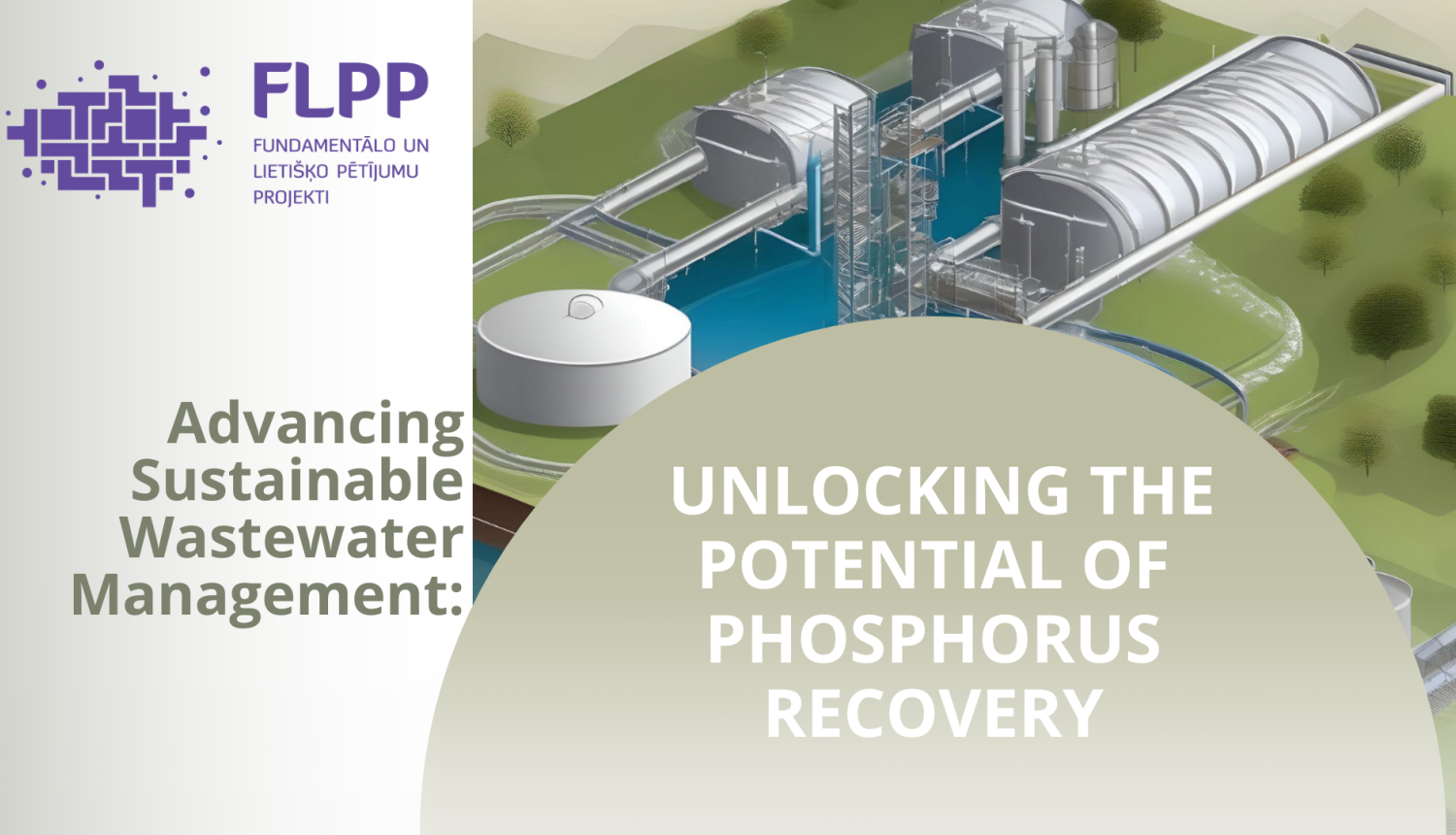Should wastewater be wasted? Not according to a recently published study on the "Use of calcium/iron oxide composites for sorption of phosphorus from wastewater." The study challenges the notion of waste by advocating for the efficient reuse and extraction of valuable nutrients, such as phosphorus, in a cost-effective manner. Latvian Council of Science funded the project that focuses on investigation of “Unused Latvia’s natural mineral resources for the development of innovative composite materials for phosphorous recovery from small municipal and industrial wastewater treatment plants to implement the principles of circular economy (CircleP)”.
In order to reach ambitious circular economy goals, it is of utmost importance to not only reuse existing resources but also ensure that such practices are economically viable. Raw materials play a pivotal role in building a sustainable economy, and phosphorus, often imported to the EU and wasted after use, presents a prime opportunity for recovery from industrial and municipal wastewaters.
Conventional phosphorus removal methods mainly use chemical substances and are ineffective in removing pollutants, posing challenges for both users and environmental sustainability, as after usage the risk of pollution to the environment, or eutrophication. The study highlights the urgent need to introduce efficient and cost-effective phosphorus recovery methods, potentially transforming it into a slow-release fertilizer for agricultural use.
The wastewater treatment and extraction process involve complex technological procedures. Integrating additional steps into existing stages could facilitate the production of ready-to-use phosphorus fertilizer. The study conducted experiments on various materials as potential sorbents, addressing key questions regarding efficacy and feasibility.
The research compared the performance of new materials, such as three kinds of calcium/iron composites, to commercially available products, yielding promising results. Among the tested composites, the calcium/iron oxide filter demonstrated superior phosphorus filtration capabilities, offering a viable solution for wastewater treatment. What needs to be emphasized is that calcium/iron oxide filter is produced from subsoil resources with little or no industrial use, that gives it additional value.
While further testing and experimentation are needed to ensure the safety and reliability of the extraction process, the study underscores the availability of materials within Latvia and the potential for importing technology to advance wastewater treatment practices. By harnessing technological and cost advantages, the study envisions a future where extracted phosphorus serves as a green, effective, and regenerable material, closing the loop of resource utilization.
For inquiries or further information, please contact:





